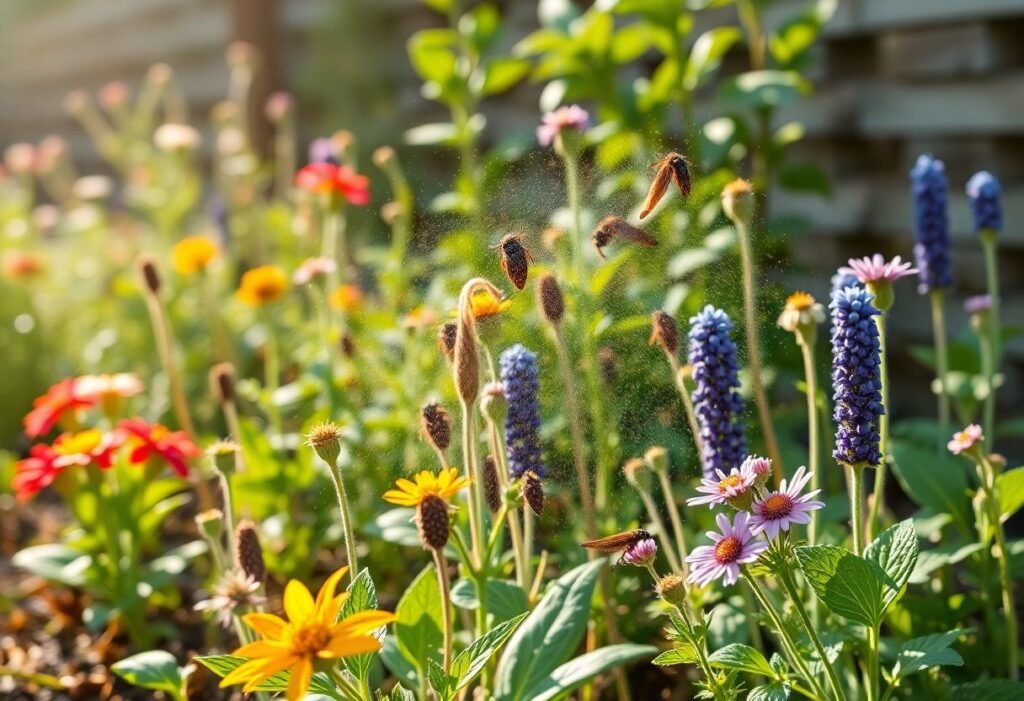Understanding the Benefits of Natural Pest Control
Utilizing natural bug repellent gardens offers numerous advantages. First and foremost, these methods are safer for both humans and pets. Unlike chemical pesticides, which may pose hazards, natural solutions harness the power of plants and herbs that efficiently deter insects while being kind to our surroundings. Along with pest protection, natural approaches often enrich the soil, enabling healthier plant growth.
Plants That Naturally Repel Bugs
Knowing which plants have insect-repelling properties is essential for creating an effective garden. Incorporating plants such as lavender, mint, basil, and chamomile can make a significant difference. Strategically planting them can provide natural barriers against unwanted guests. Additionally, boosting your natural bug repellent garden can be achieved by combining these herbs with companion plants, enhancing both their repelling abilities and aesthetic appeal.
Essential Oils for Bug Defense
Another potent method to deter bugs is by using essential oils. Create your own blend with oils such as eucalyptus and lemon to effectively ward off mosquitoes and flies. A simple spray made from water and essential oils can provide a quick and effective means of utilizing their natural repelling properties. A well-maintained natural bug repellent garden offers added protection not only within the garden itself but around your home as well.
Plant Companionship Techniques
Designing proper combinations of plants in your garden also serves as a natural pest deterrent. Employing companion planting—putting together plants that support each other—can yield excellent results. For instance, pairing carrots and onions can deter pests that typically attack carrots, thanks to the onion’s potent aroma. The benefits of your natural bug repellent garden extend beyond mere insect control, aiding plant development through synergistic relationships.
Creating Bug Traps
Incorporating bug traps into your garden is another natural method to reduce pest populations. Homemade traps, such as apple cider vinegar traps for flies, can prove effective and budget-friendly. These traps work by luring insects with the scent of vinegar, effectively capturing them. This method not only minimizes insect populations but also complements the principles of your natural bug repellent garden.
Fresh Ideas for Garden Decor
Enhancing your garden’s design with decorative elements is just as important as pest management. To heighten the repellent effect, consider using scented candles with natural ingredients that help ward off bugs. Additionally, incorporating artificial plant shapes that mimic natural forms can add visual interest while serving a practical defense against pests. This way, you create a space that marries aesthetics and functionality.
Conclusion
Embrace natural solutions and design your perfect natural bug repellent garden. Don’t wait any longer! Start taking action today to ensure a healthy and safe environment for you and your loved ones. Your thoughtful plant combinations and clever ideas will guide you towards achieving the garden of your dreams!
Disclaimer
The information contained in this article is for informational purposes only and is not a substitute for professional advice. Always seek advice from gardening and plant protection specialists.

















